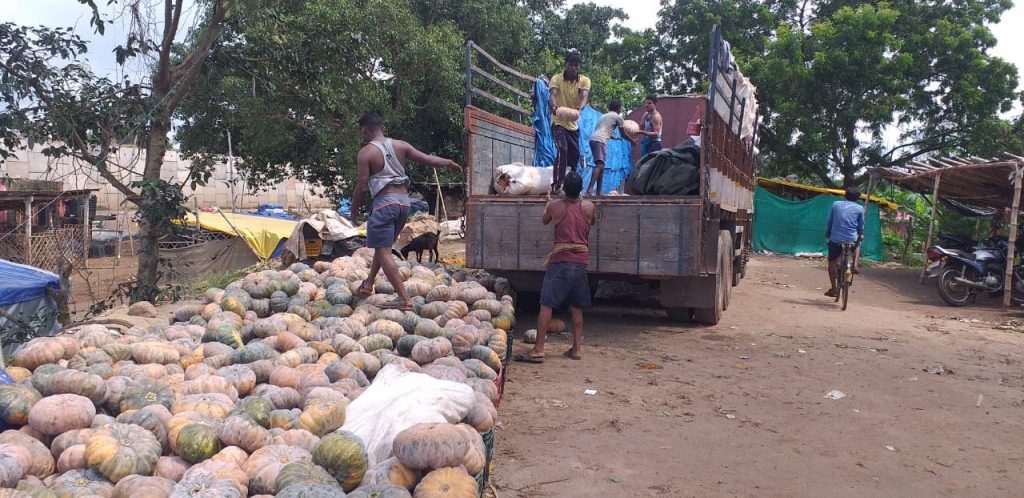Rasulpur: Barabati vegetable haat, a major hub of vegetable trading on NH-16 in Jajpur district looks desolate these days, a report said.
This has happened after incessant rainfall which lashed the district in September due to low-pressure in Bay of Bengal destroyed their crops.
The haat was set up in the past to provide marketing facilities to farmers for their harvested vegetables.
In their absence, the control and management of the haat has slipped into the hands of traders while consumers have been deprived of getting freshly harvested vegetables and has to depend on outside traders to meet their vegetable needs for kitchen.
The prices of vegetables have skyrocketed while traders are reaping windfall profit due to the development. The rising price has forced consumers to spend extra bucks to buy vegetables either for their kitchen or for arranging community feast in the festive season.
Taking advantage of the situation, traders procure hundreds of tonnes of vegetables from outside of the state to meet the demand of consumers.
They are keeping a close watch on the price index of outside markets and determine the prices of vegetables in Barabati haat.
They procure vegetables at cheap prices during lean period and sell them at exorbitant rates during festivals and celebrations. Things have come to such a pass that no vegetables are sold in the haat at below Rs 50 per kg.
Residents have demanded the district administration or the local authorities to intervene and curb the increasing prices of vegetables.
Reports said Rasulpur block in Jajpur district has carved a name for itself in cultivation of vegetables.
Farmers here cultivate types of vegetables throughout the year to earn their livelihood as well as to meet the requirements of the local consumers and commuters passing by the way on the National Highway.
After meeting the demands of the local consumers, farmers dispatch the rest of the vegetables to various locations in the state and outside of the state.
Keeping these things in mind, this year also farmers cultivated cauliflowers, long beans, pumpkins, pointed gourds and spine gourd (kankada) on their farmlands.
However, their cultivation was affected after the area experienced 200 millimeter of rainfall last month. The incessant rainfall destroyed their cultivation on the farmlands as well as on their backyards.
When contacted, a trader requesting anonymity said he is forced to sell vegetables at a higher price as he has to pay a similar rate while procuring them from outside of the state.
PNN
